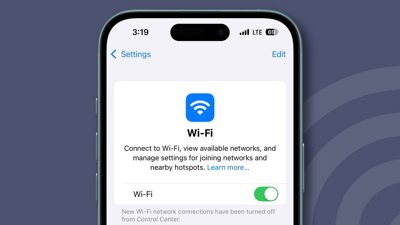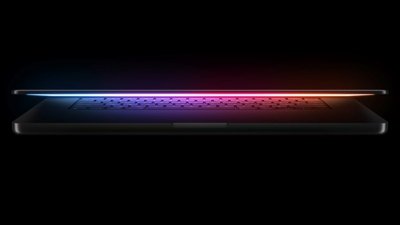The Australian Competition and Consumer Commission on Thursday local time filed a federal lawsuit against Apple for allegedly disabling iPhone and iPad hardware repaired by unauthorized third parties.
Lodged with Australia's Federal Court, the ACCC's action takes aim at an Apple iOS software update that led to so-called "Error 53" messages on consumer iPhones and iPads.
The suit claims Apple rendered inoperable hundreds of smartphones and tablets with a software update last February. Though users presented with Error 53 messages were subsequently locked out of their device, Apple refused to service defective units as they had undergone screen or Touch ID module repairs by an unauthorized repair facility, the ACCC alleges.
Apple's actions fall afoul of Australian Consumer Law, under which consumers are entitled to certain free product guarantees.
"Consumer guarantee rights under the Australian Consumer Law exist independently of any manufacturers warranty and are not extinguished simply because a consumer has goods repaired by a third party," ACCC Chairman Rod Sims said. "Denying a consumer their consumer guarantee rights simply because they had chosen a third party repairer not only impacts those consumers but can dissuade other customers from making informed choices about their repair options including where they may be offered at lower cost than the manufacturer."
Error 53 codes began popping up on user iPhone 6 series units from at least early 2015, but the issue gained public notoriety when media outlets reported the supposed glitch in early 2016. The ACCC action pegs the effective Error 53 timeline as taking place between September 2014 and February 2016.
As previously reported, the error codes impacted iOS hardware that had undergone Touch ID module — or in some cases screen, flex cable and water-damaged component — replacement by a repair firm operating outside of Apple's Authorized Service Provider network. Screen repairs are at the heart of the Australian suit.
Apple later acknowledged the issue, saying the error message was tied to Touch ID security.
"We take customer security very seriously and Error 53 is the result of security checks designed to protect our customers," the company said at the time.
As explained by Apple, iOS performs routine Touch ID module checks to ensure that the hardware "matches" other components installed on an iPhone and iPad. To maintain a high level of security, and thwart fraudulent hardware, Touch ID sensors that fail these tests are automatically disabled.
In addition to being rendered inoperable, iPhones that showed Error 53 messages were no longer eligible for Apple warranty coverage as they were repaired by an unauthorized third party.
Apple was slapped with a class action lawsuit in the U.S. just days after news of the error message hit. The lawsuit, which similarly targeted Apple's hardware repair practices, was ultimately thrown out for lack of standing.
The ACCC is seeking penalties, injunctions, declarations, compliance program orders, corrective notices and costs in its action against Apple.
 Mikey Campbell
Mikey Campbell














 Andrew Orr
Andrew Orr
 Wesley Hilliard
Wesley Hilliard
 Malcolm Owen
Malcolm Owen
 Christine McKee
Christine McKee


 William Gallagher
William Gallagher









35 Comments
I'd argue that Error 53 is the result of a faulty repair by a 3rd party - since those 3rd parties offered a service which they couldn't reasonably complete.
It seems reasonable to me that a free warranty wouldn't apply for two reasons: the screen repair isn't covered by a free warranty and repairing 3rd party works is also not covered under warranty. (Additionally repair of the device is problematic without the original TouchID sensor.)
Error 53 was the result of sub-par repairs, not a fault in apple's hardware or software.
-- To provide a little more context the devices were represented to Apple as 3rd party repaired devices and ACCC's complaint is that that Apple do not have the right to refuse warranty based *solely* on the device receiving 3rd party repairs. My point of view here is that these were not 3rd party "repairs", since the "repair" did not address the built-in security features of the device, thus Apple would actually have the right to refuse warranty. In short, just because these unfortunate people paid a technician to break their device doesn't mean that Apple should be obligated to a FOC repair.
It will be interesting to see where this goes. I'm on Apple's side here, for the most part, in that it might set a precedent for manufacturers to honour warranties on third party repairs.
I suppose one issue might be whether they were clear that this might happen if it were repaired by a third party prior to the update that caused the errors. Or even whether they could reasonably be expected to know this would happen.
This is completely separate from the other issues re: Apple Pay that the ACCC are looking in to, and should have no effect on any decision they make about that.
Good for the ACCC. Apple can't win this as what they did clearly breeches consumer law. This is nothing to do with the quality of repairs, it is everything to do with the rights of a consumer in Australia.